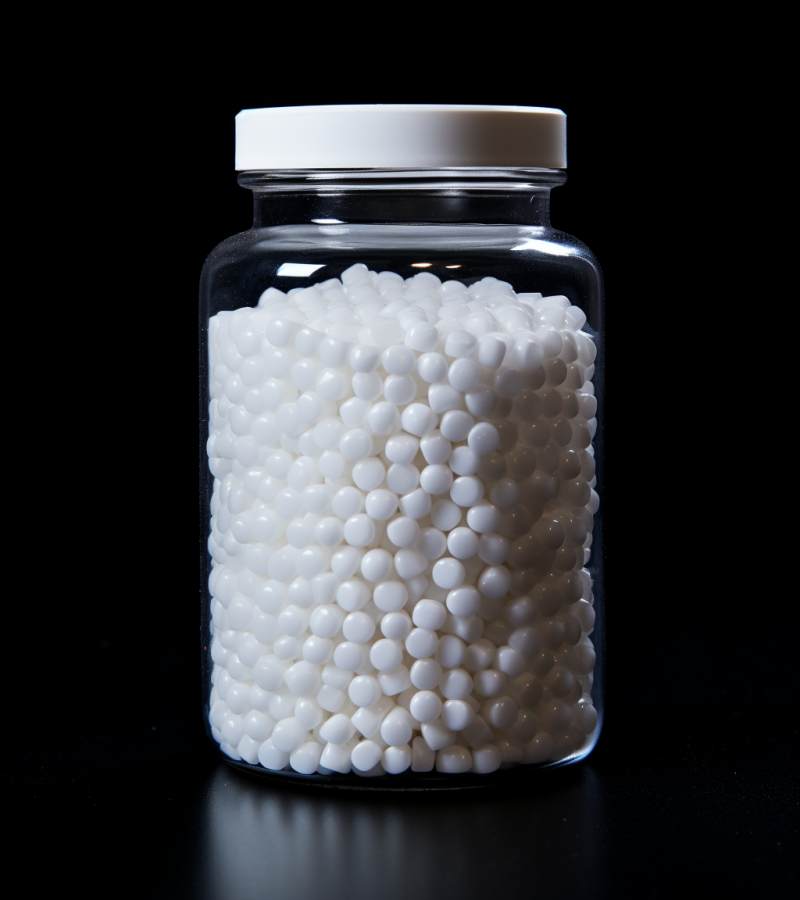Silicone additives are integral components in the realm of polymer compounds, serving as key agents that significantly boost the quality and performance of these materials. These additives, while not always in the limelight, are essential to the manufacturing process, offering a wide array of benefits from enhancing processing efficiency to altering surface properties. The role of silicone additives becomes even more critical when it comes to modified polymer compounds. Their contribution is vital in elevating the quality of these compounds, making them more resilient, efficient, and adaptable. Silicone additives work by improving resin flow, reducing extruder torque, and facilitating better mold filling and release, which in turn speeds up throughput. They also modify surface properties to deliver superior surface quality, reduced friction, and increased resistance to wear and tear. In a nutshell, silicone additives are the unsung heroes that drive the polymer industry forward, pushing the boundaries of innovation and quality.
What are the different types of silicone additives available?
Silicone additives come in various types, each with its unique properties and applications. Here are some of the 8 common types:
1.Silicone Processing Aids
These are used to enhance the processing of polymers. They improve the resin flow, reduce the extruder torque, and increase the overall processing efficiency.
2.Silicone Lubricants
These are used as lubricant additives in wire and cable compounds, engineering compounds, and TPE/TPV compounds. They help reduce friction and wear, extending the life of the product.
3.Anti-scratch Additives
These are used in automotive PP interiors to reduce the visibility of scratches and improve the overall appearance of the product.
4.Anti-abrasion Agents
These are used in outsoles to increase their resistance to wear and tear, thereby improving their durability.
5.Silicone Surfactants
These are used to modify the surface properties of polymers. They can improve the surface quality, reduce the coefficient of friction, and increase resistance to abrasion and scratches.
6.Silicone Defoamers
These are used to prevent the formation of foam during the production process.
7.Silicone Softeners
These are used to improve the softness and flexibility of polymers.
8.Silicone Coupling Agents
These are used to improve the adhesion between different materials in a compound.
Each type of silicone additive has a specific role to play in the polymer industry, and their combined use can significantly enhance the quality and performance of the final product.
What are the role of silicone additives in polymer processing?
Silicone additives play a pivotal role in polymer processing. They not only enhance the manufacturing process’s efficiency but also boost the final product’s quality and performance in its ultimate application. Here are five key functions they serve in polymer processing:
- Enhance Processing Efficiency: Silicone additives, particularly processing aids, improve the flow of resin, making it easier to shape and mold. This leads to improved mold filling and release, reduced extruder torque, and faster throughput, all of which enhance processing efficiency.
- Improve Surface Quality: Silicone surfactants modify the surface properties of polymers, resulting in superior surface quality. They can reduce the coefficient of friction, making the surface smoother, and increase resistance to abrasion and scratches, making the product more durable.
- Lubrication: Silicone lubricants reduce friction during the manufacturing process. This not only extends the lifespan of the machinery but also improves the quality of the final product by preventing defects caused by excessive friction.
- Anti-scratch and Anti-abrasion Properties: Certain silicone additives are used to improve the durability of the final product. Anti-scratch additives are used in automotive interiors to reduce the visibility of scratches, while anti-abrasion agents are used in outsoles to increase their resistance to wear and tear.
- Improve Product Performance: By enhancing the flow and fill of the resin, reducing friction, and improving surface quality and durability, silicone additives ultimately improve the performance of the final product. They can make products more durable, more aesthetically pleasing, and more functional.

How do silicone additives enhance the quality of modified polymer compounds?
Silicone additives can significantly enhance the quality of modified polymer compounds, improving their processability, appearance, performance, stability, and environmental impact,here 6 ways for your reference:
1.Improved Processing:
Silicone additives can improve the processability of polymers, making them easier to mold and shape. This can result in a more uniform and high-quality final product.
2.Enhanced Surface Properties
Silicone additives can improve the surface properties of the final product. They can provide a smoother, glossier finish, reduce friction, and increase resistance to scratches and abrasion. This can enhance the aesthetic appeal and durability of the product.
3.Increased Performance
Silicone additives can enhance the physical and mechanical properties of the polymer, improving the performance of the final product. This can include improved flexibility, increased heat resistance, and enhanced electrical properties.
4.Improved Stability
Silicone additives can enhance the stability of polymers, helping them maintain their properties over time and under various conditions. This can result in a longer-lasting, more durable product.
5.Versatility
Because silicone additives can be used with a wide range of polymer types, they can enhance the quality of a wide variety of products.
6.Environmentally Friendly
By reducing the energy required for processing and enhancing the durability and lifespan of the final product, silicone additives can help make polymer compounds more environmentally friendly.
Can you explain how silicone additives improve surface quality?
Silicone additives can significantly modify the surface properties of polymer compounds, improving their appearance, durability, functionality, and compatibility with other materials,below 6 ways for your check:
- Surface Smoothness: Silicone additives can reduce the surface tension of the polymer melt during processing, leading to a smoother surface in the final product. This can improve the product’s appearance and tactile properties.
- Lubrication: Silicone additives can act as internal and external lubricants, reducing friction during processing and in the final product. This can make the product easier to handle and can reduce wear and tear.
- Scratch and Abrasion Resistance: Certain silicone additives can improve the scratch and abrasion resistance of polymer surfaces. This can enhance the durability and lifespan of the product.
- Gloss and Shine: Silicone additives can increase the gloss and shine of polymer surfaces, enhancing their aesthetic appeal.
- Hydrophobicity: Silicone additives can increase the hydrophobicity of polymer surfaces, making them more water-resistant. This can be particularly useful in applications such as outdoor furniture or automotive components.
- Adhesion: Certain silicone additives can improve the adhesion of coatings or other materials to polymer surfaces. This can be important in applications such as paintable automotive parts or adhesive-bonded assemblies.

How does your factory ensure the quality of the silicone additives it manufactures?
Factory might ensure the quality of the silicone additives it manufactures:
- Raw Material Inspection: The quality control process begins with the inspection of raw materials. Manufacturers ensure that they are using high-quality, pure ingredients to produce the silicone additives.
- Process Control: During the manufacturing process, manufacturers monitor and control the process parameters (like temperature, pressure, and reaction time) to ensure they are within the specified range. This helps to ensure a consistent and high-quality product.
- In-Process Testing: Manufacturers often conduct in-process testing to monitor the quality of the product during different stages of production. This allows them to identify and correct any issues early in the process.
- Final Product Testing: Once the silicone additives are produced, manufacturers conduct a series of tests on the final product. These tests may include physical and chemical property tests, performance tests, and compatibility tests.
- Certification: Many manufacturers also seek certification from independent bodies, which involves additional testing and inspection to verify that the product meets certain standards.
- Traceability: Manufacturers often maintain detailed records of each batch of product, including raw material sources, production parameters, and test results. This allows them to trace any quality issues back to their source.
- Continuous Improvement: Many manufacturers also have a process for continuously improving their quality control procedures based on feedback and data from the testing and inspection processes.
What are the future trends in the use of silicone additives in polymer compounds?
Silicone additives are extensively employed in polymer compounds to enhance their characteristics and efficiency. The application of silicone additives in polymer compounds is a vibrant and evolving field with 12 emerging trends:
- Sustainability: As the world moves towards more sustainable and environmentally friendly practices, there is a growing demand for silicone additives that are biodegradable or made from renewable resources
- Improved Performance: There is a continuous demand for silicone additives that can provide improved performance characteristics, such as higher heat resistance, improved flexibility, or better weathering resistance.
- Health and Safety: There is a growing focus on health and safety in the polymer industry. This includes developing silicone additives that are non-toxic, hypoallergenic, and safe for use in food and medical applications.
- Smart Materials: The development of smart materials, which can change their properties in response to external stimuli, is a growing trend in the polymer industry. Silicone additives can play a key role in these materials, for example by providing temperature or light sensitivity.
- 3D Printing: The rise of 3D printing technology is creating new opportunities for silicone additives. These additives can be used to modify the properties of 3D printing materials, for example to improve their strength, flexibility, or printability.
- Nanotechnology: The use of nanotechnology in the polymer industry is a growing trend. Silicone additives at the nanoscale can provide unique properties, such as improved barrier properties or enhanced mechanical strength.
- Increased Demand in Automotive and Aerospace Industries: As these industries continue to seek materials that are lightweight yet durable, the demand for silicone additives in polymer compounds is expected to rise. These additives can enhance properties like heat resistance, which is crucial in these sectors.
- Advancements in Medical Technology: Silicone additives are increasingly being used in medical devices and equipment due to their biocompatibility and flexibility. As medical technology advances, the use of silicone additives in polymer compounds is expected to grow.
- Eco-Friendly Additives: With the growing emphasis on sustainability, the development of eco-friendly silicone additives is likely to be a significant trend. This includes additives that are recyclable or that have a lower environmental impact.
- High-Performance Additives for Electronics: The electronics industry often requires materials with specific properties, such as electrical insulation or thermal conductivity. Silicone additives that can enhance these properties in polymer compounds will likely be in high demand.
- Innovation in Construction Materials: Silicone additives can improve the durability and weather resistance of construction materials. As the construction industry seeks to innovate and improve the longevity of its materials, the use of silicone additives in polymer compounds is expected to increase.
- Customization: As technology advances, there is a growing trend towards customization. This includes the development of silicone additives that can be tailored to provide specific properties in polymer compounds, allowing for the creation of materials with highly specific characteristics
In conclusion, the importance and impact of silicone additives on the quality of modified polymer compounds cannot be overstated. These additives, often underappreciated, are the backbone of the polymer industry, enhancing the efficiency of production and significantly improving the quality of the final product. They contribute to the durability, efficiency, and versatility of these compounds, making them indispensable in the manufacturing process. Looking ahead, the future of silicone additives in the polymer industry appears promising. As the demand for high-quality, durable, and versatile polymer compounds continues to grow, so too will the need for silicone additives. Their ability to improve resin flow, reduce extruder torque, and enhance surface properties will continue to drive innovation and quality in the industry. In essence, silicone additives are set to remain the unsung heroes of the polymer world, propelling the industry forward into a future of continued growth and advancement.


